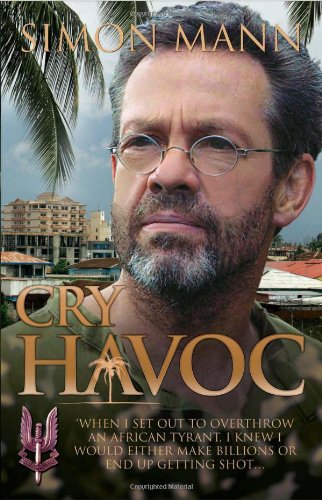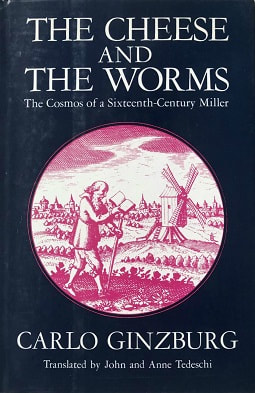|
Cry Havoc
By Simon Mann Published in September 2012 352 Pages Thibault’s Score: 4/5 Cry Havoc is the story of Simon Mann, one of the executives of the 1990s South African mercenary outfit called “Executive Outcomes.” The book details how he became a mercenary, the campaigns he fought in, and his eventual imprisonment and capture. Simon Mann was a British soldier who served with the SAS - one of the UK’s most elite units. He fought for the British army in Northern Ireland and in the Gulf War. In 1991, he left the army to work in oil and gas. Mann was working on an oil and gas project in Angola, when a group of rebels captured his project. He was angered - rather than letting his project fall apart, he decided to fight back. He co-founded Executive Outcomes, and eventually defeated the Angolan rebels. Later, he would help defeat an army of rebels in Sierra Leone, ending an insurgency in a matter of weeks which the UN had struggled with for decades. By the late 1990s, Executive Outcomes had become one of the largest and most successful mercenary outfits in the world. His men served on fields across Africa, as well as far flung places like Papua New Guinea and Indonesia. Everything would come crashing down in 2004, when he was hired to stage a coup against the government of Equatorial Guinea by Margaret Thatcher’s son Mark Thatcher. The coup fails - Mann is arrested on his way to Equatorial Guinea in Zimbabwe. He is captured, tortured, and forced to sign a confession letter. He then spends five years in Chikurubi, Zimbabwe’s hardest prison. The last half of the book focuses on his harrowing time in jail. Eventually, he is sent back to Equatorial Guinea, where he stands trial, and helps the government identify everyone who had been responsible for the coup four years earlier. The president pardons him in exchange for his corporation. He returns to the UK, but finds it hard to adjust himself to life after Chikurubi. To cope, he decides to write this book. I enjoyed the writing style. This book is a must-read for any fools thinking of joining a mercenary outfit (I know a few). Even the CEOs of mercenary companies, like Mann, barely make any money. In addition to being incredibly hard and dangerous, it doesn’t pay well. The only ones making money are the ones hiring the mercenaries - the mercenaries themselves are the losers. I recommend this book to anyone interested in learning more about privatized warfare, and modern African politics.
0 Comments
The Cheese and the Worms
By Carlo Ginzburg Published in 1976 208 Pages Thibault’s Score: 3/5 The content of the book is fascinating, but the writing is terrible. Academic writing is generally bad; translated books are generally bad; old writing is generally bad. This is an old academic book written in Italian - and it was a slog. Thankfully, it wasn’t very long. In the late 1500s, an Italian miller called Menocchio is arrested for heresy and interrogated by the inquisition. As a result of these legal proceedings, there is an extensive written record about Menocchio’s world view. Menocchio was a literate peasant who taught himself how to read and write. Thanks to the invention of the printing press, he obtained a few dozen books. His readings allowed him to develop a wide variety of unusual political and religious beliefs. Preaching his newfound beliefs to his peasant peers got him in trouble, and he was eventually arrested and interogated for several months. Menocchio’s story reflects a wide political and ideological movement among lower class peasants in late 1500s Europe. These peasants combined the written word (which they now had access to) with older oral traditions. They create a wide variety of alternative views that go against the church’s ancient teachings. The authorities tried to clamp down. Right now, I live in an era where the forces of the mainstream are attempting to censor and wipe out new alternative views that have emerged thanks to the internet. Nothing scares me more than the repression of medical quacks, politically incorrect views, and activists trying to prevent war with Russia. If I were to design a religion, then I would classify censorship as one of the three worst sins alongside rape and murder. I emphasize with Menocchio. He came to unusual views through the new technology of the printing press; and lacked a formal education. I am a modern day Menocchio - I came to my views through the internet and through my own readings. Like Menocchio, I can feel the predatory glares of the thought police at my back and cannot help but fear that one day I may be repressed just like him. This book was objectively pretty bad. Roughly 15% of the book is literally just the professor thanking people and talking about how he started his research. Another 15% is academic theorizing that is too abstract to matter. While the subject matter is fascinating, the writing is so terrible that I cannot recommend this book. I hope that a more competent author re-examines Menocchio’s life, and writes a book for a non-academic audience. If that happens, then I will strongly recommend this book. |
Thibault SerletMost of my articles are book reviews, but I also write about many other topics. Archives
December 2023
Categories |


 RSS Feed
RSS Feed